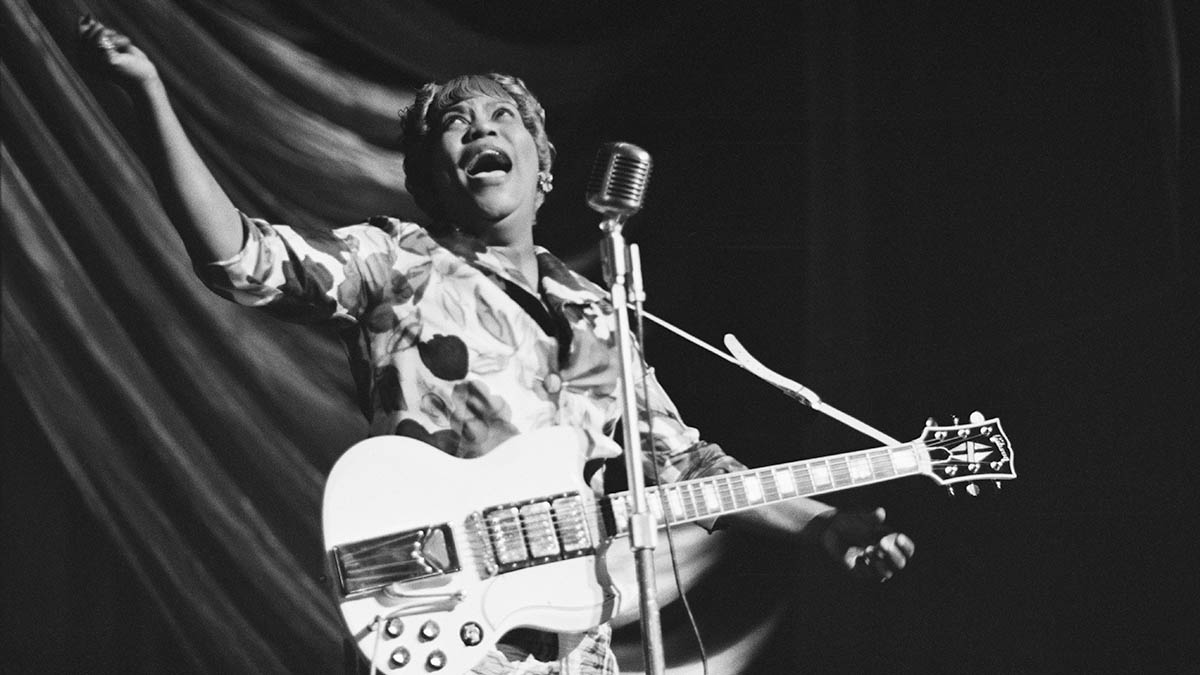Gibson releases new mini-documentary on Sister Rosetta Tharpe, "the founding mother of rock 'n' roll"
Narrated by Celisse, and also featuring Amythyst Kiah, the film highlights how Tharpe was – in everything from her guitar playing to her decision to hold a massive concert at a baseball stadium – decades ahead of her time
All the latest guitar news, interviews, lessons, reviews, deals and more, direct to your inbox!
You are now subscribed
Your newsletter sign-up was successful
Though recognition of Sister Rosetta Tharpe's enormous role in shaping blues and rock guitar playing has increased in recent years, she's still all too often overlooked in discussions of rock 'n' roll's most influential pioneers.
However, a newly released mini-documentary from Gibson, Shout, Sister, Shout! Sister Rosetta Tharpe, seeks to help change that.
Narrated by Celisse – best known for her guitar work with Lizzo – and featuring Grammy-nominated singer/songwriter/guitarist Amythyst Kiah, Shout, Sister, Shout! discusses how Tharpe blended the passion and spirituality of the gospel she was raised on with fierce electric guitar playing, which – with its high-volume power, aggression and virtuosity – was whole decades ahead of its time.
The nine-minute film – which you can see above – also discusses Tharpe's 1951 wedding ceremony at Washington, D.C.’s Griffith Stadium. Held before 25,000 paying customers, the ceremony was followed by a live stadium performance that predated The Beatles' American stadium tours by over a decade, and Elvis Presley's scandalously raucous Ed Sullivan Show appearance by five years.

As the film touches on, Tharpe's commercial success in the 1930s, '40s and '50s came during a time when racial segregation was the law of the land in the Southern United States. While on tour in the South, Tharpe often suffered the indignity of being forced to sleep on her tour bus, while her white bandmates and tourmates slept in hotel rooms.
"While we think of a bus as [this] image of 'oh you've made it if you have a tour bus,' to know that for her it was literally survival, it really shines a light on the shoulders that I'm standing on," Kiah says in the film.
As an homage to Tharpe's legendary 1964 concert at the abandoned Wilbraham Road railway station in Manchester, England, Celisse and Kiah also perform – with Custom Shop replicas of Tharpe's favored 1961 Les Paul SG Custom – a rendition of Didn't It Rain at a train station.
All the latest guitar news, interviews, lessons, reviews, deals and more, direct to your inbox!
"She [Tharpe] entranced audiences and inspired untold numbers of blues-loving players from across the pond, people like Eric Clapton and Keith Richards," Celisse says. "There's an endless list of artists that borrowed from Sister Rosetta – folks like Elvis, Johnny Cash, Led Zeppelin, Little Richard, Jerry Lee Lewis, Chuck Berry, even me!
"Sister Rosetta Tharpe was born to be on stage and channel her joy of faith through her powerful voice and volcanic playing. She took audiences to church and her male guitar playing contemporaries to school.
"While it's taken decades to finally give her her due," Celisse concludes, "there is no debating that Sister Rosetta Tharpe is the unquestioned founding mother of rock 'n' roll."
Aside from the film, Gibson is also celebrating Tharpe's legacy with a new line of merchandise – including posters, shirts, jackets, pennants and a guitar strap – featuring the guitarist and her trademark, three-pickup Les Paul SG.
To see the full line of merch, stop by Gibson.
Jackson is an Associate Editor at GuitarWorld.com. He’s been writing and editing stories about new gear, technique and guitar-driven music both old and new since 2014, and has also written extensively on the same topics for Guitar Player. Elsewhere, his album reviews and essays have appeared in Louder and Unrecorded. Though open to music of all kinds, his greatest love has always been indie, and everything that falls under its massive umbrella. To that end, you can find him on Twitter crowing about whatever great new guitar band you need to drop everything to hear right now.


